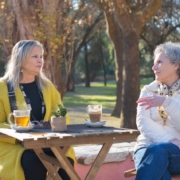When it comes to senior care, affordability often takes center stage. But what about quality? It’s just as crucial to ensure your loved ones are not only well cared for but also happy and engaged. This post aims to provide a comprehensive guide to evaluating quality in senior living communities.
Understanding the Different Levels of Care
Choosing the right type of senior living for your loved one is a big decision. Understanding the different levels of care available can help narrow down your options.
Independent Living
Independent living is ideal for seniors who are self-sufficient but want the convenience of community services. These communities offer social activities, dining options, and maintenance-free living. The key consideration here is ensuring the community offers the amenities and activities that will keep your loved one engaged and happy.
Assisted Living
Assisted living is for those who need help with daily activities but don’t require constant medical care. Staff members assist with tasks like bathing, dressing, and medication management. When evaluating assisted living, it’s crucial to look at the staff-to-resident ratio and the quality of care provided.
Memory Care
Memory care units cater to residents with Alzheimer’s or other forms of dementia. These communities offer specialized programs and secure environments to ensure safety. The level of medical support and the staff’s expertise in dementia care are significant factors to consider.
Skilled Nursing
Skilled nursing facilities (generally referred to as nursing homes) provide extensive medical care and are ideal for seniors with severe health issues. These facilities have licensed nurses on staff 24/7. The quality of medical care, cleanliness, and comfort of the facilities are primary considerations.

Factors That Define Quality in Senior Living
When evaluating senior living communities, several factors can help you determine their quality.
Licensing and Accreditation
First and foremost, ensure the community has the necessary state licenses and industry certifications. Accreditation from recognized bodies like the Joint Commission is a good indicator of quality. Check for any violations or complaints against the facility to get a clearer picture of its standing.
Staff-to-Resident Ratio
Adequate staffing is essential for providing high-quality care. A low staff-to-resident ratio means more personalized attention for each resident. Additionally, inquire about the staff’s training and qualifications to ensure they are well-equipped to handle various needs.
Amenities and Facilities
The quality and cleanliness of the living spaces, common areas, and dining options speak volumes about a community. Visit the facility and observe the conditions firsthand. Are the rooms well-maintained? Is the dining area clean and inviting? These aspects contribute significantly to the residents’ overall well-being.
How to Evaluate a Community During a Visit
Visiting a senior living community is a crucial step in the evaluation process. Here’s what to keep an eye out for.
Observe Staff Interactions
Pay close attention to how staff members interact with residents. Are they respectful and patient? Do they seem genuinely interested in the residents’ well-being? Positive interactions are a sign of a caring environment.
Resident Engagement
Observe the residents. Are they participating in activities? Do they seem happy and engaged? A vibrant community with various activities indicates a focus on residents’ social and emotional needs.
Safety Features
Safety is paramount in any senior living community. Look for features like handrails, emergency call systems, and secure entrances. Ask about the protocols in place for medical emergencies and natural disasters.
Suggested Questions to Ask
Prepare a list of questions to ask staff and current residents. Inquire about the daily schedule, medical care, meal options, and any other concerns you may have. Don’t hesitate to ask residents for their honest opinions about the community.
Multiple Tours
Take multiple tours at different times of the day. This will give you a more comprehensive view of the community’s operations and atmosphere. You might notice things during an evening tour that you didn’t see during a morning visit.

Red Flags to Watch Out For
While evaluating senior living communities, be on the lookout for red flags that may indicate potential issues.
High Staff Turnover
Frequent changes in staff can disrupt the continuity of care and affect residents’ well-being. Ask about the staff turnover rate and the reasons behind it.
Complaints
Look for patterns of complaints, either from residents or their families. Consistent complaints about specific issues can be a warning sign of underlying problems.
Lack of Programming
A lack of activities and programs for residents can lead to boredom and isolation. Ensure the community offers a variety of engaging activities tailored to residents’ interests and abilities.
Conclusion
Choosing a senior living community is a significant decision that requires careful consideration of various factors. By understanding the different levels of care, assessing quality indicators, and being aware of red flags, you can make an informed choice that ensures your loved one’s happiness and well-being.
Ready to find the perfect senior living community? Check out Map of Care (www.themapofcare.com) to explore options, check real-time availability, and access a wealth of resources to guide your decision-making process.
By taking these steps, you’re well on your way to finding a senior living community that meets your loved one’s needs and provides peace of mind for your family. Happy searching!








